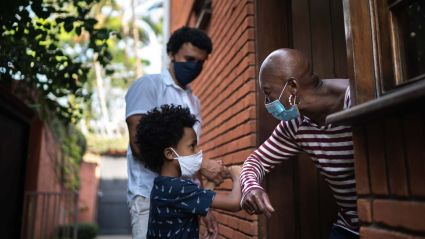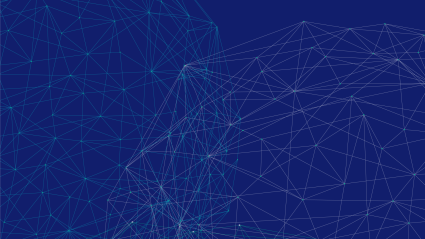
Key Takeaways
Below are some of the main takeaways from COVID-19 Africa Watch’s conversation with Dr. Samira Asma, Assistant Director-General for the Division of Data, Analytics and Delivery for Impact (DDI) of the World Health Organization. This Division which was created to foster a relentless focus on results to deliver on the health-related Sustainable Development Goals and meet the Triple Billion targets, backed by the highest standards of health data.
-
The SCORE global report on health data systems and capacity, 2020 was prepared by WHO and its partners and member states to bring together all the countries’ data and health information systems under one umbrella in a technical package. The report was launched in February 2021 with an accompanying Assessment Methodology, Online Data Portal, and visual summary. SCORE stands for a set of over 90 tools and solutions that countries can use based on their context and apply it to strengthen their health information systems. In August 2020, WHO launched the set of technical packages, and recently, they launched the first ever Global Report along with country-by-country assessments for about 133 countries representing almost 87% of the world’s population.
-
Only 3% of public health surveys in the African region are funded by the governments, leading to dependence on external donors. But there are credible institutions and national statistical organizations in the continent which, in partnership with Ministries of Health, Interior, and Justice, should work towards gathering meaningful data. The SCORE technical package connects all these various data platforms that are necessary for any country to effectively track progress towards health-related SDGs, national public health policies, and health program improvements.
-
Limited government budgets can be used smartly to collect relevant and useful data, leveraging technology. The three important ingredients for success and sustainability are: good technical excellence, good operational practices, and political commitment. For example, Zambia is the first country in the world to have used mobile phones to conduct a national survey to assess risk factors for non-communicable diseases in partnership with the Ministry of Health and Telecommunications. Whereas a household survey would take at least a year and a million dollars to be executed, this was done in a month and within a budget of a few thousand dollars.
-
Digitalization can help secure privacy of patients while also improving medical record keeping in Africa. WHO has put forward a digital strategy and a data governance mechanism to support member states for digital health solutions, including division of Digital Health to provide technical support. WHO is also partnering with other UN agencies, such as International Telecommunications Union, and encouraging governments to themselves tap into Public-Private Partnerships so that the private sector can help accelerate innovation in the public sector.
The interview was conducted by Tsametse Civilian Mmolai, an IFC-Milken Institute Capital Market Scholar from Botswana Stock Exchange. A transcript is available below.
Transcript
Interviewer
Hello, my name is Tsametse Mmolai, I’m the head of listings and trading at the Botswana Stock Exchange and I’m also an alumnus of the IFC-Milken Institute Capital Markets Program. Today I’m delighted to welcome Dr. Samira Asma, Assistant Director-General for the Division of Data, Analytics and Delivery for Impact (DDI) of the World Health Organization. Our conversation today will focus on the importance of data and analytics in the pandemic, and in particular we’ll focus on the SCORE Report.
So, I’ll just go ahead and start with respect to the first question: the report presents the results of country health information system assessments conducted by yourselves between 2018 and 2020. Could you please tell us a bit more about this report and what the WHO members and the public in general will garner from it? And what are the major highlights that we can act upon?
Dr. Samira Asma
Sure. First of all, thank you for having WHO as a part of the series, and congratulations on what you have accomplished. This is an important area. Data is indeed the lifeblood of public health. If we cannot measure, we do not know whether or not we are making progress. And COVID has really shown us that we are not at a place where we need to be, where we could have perhaps mitigated, or even had a more robust response to the pandemic, if we had good data systems globally like we have for the weather. There should be a similar global warning system for epidemic preparedness and response. With regard to the SCORE Global Report, WHO worked with partners and member states to think several years ago that we needed all the resources that support countries’ data and health information system under one umbrella in a technical package.
SCORE stands for a set of over 90 tools and solutions that countries can use based on their context and apply it to strengthen the health information systems. So last August WHO launched the set of technical packages, and about two weeks ago we launched the first ever Global Report along with country by country assessments for about 133 countries representing almost 87% of the world’s population.
We had a very good response from the African region. We are still gathering confirmation from countries for the remaining assessments to get available in public domain. So, the SCORE package measures five components of the health information system. We need good surveillance systems. So, the S stands for surveys, population, laboratory surveillance systems, many types of tracking vector-borne illnesses, vector-borne diseases. And C is important. C stands for civil registration and vital statistics, which is a very important element of countries’ governance system. Because without births and deaths it is difficult, for economic reasons, for kids to go into a school when you don’t have a birth certificate, or for a person or a partner to receive the pension when the spouse has, or the family has died. But when you look at from a health perspective, we need both birth and death systems. Not only that, but we also need to know why people are dying, of what condition? Causes of death become very important.
So, S and C. Now let me come to that later O. O is a set of routine health information systems. When we go to a hospital, when we go to a clinic, how are our health conditions in a routine way captured? And then that informs the resource allocations and influence policymaking. So, it is optimizing routine health information systems. And then the letter R stands for the regular review and presentation of data in public domain. Data is not good if it sits on the desks and collects dust. And finally, and the most important part is data is good, but it is not good if it is not used. So, E stands for enabling the use of data to drive policies and performance. If we do not have hard data and making policies and resource allocations, you know this field very well. It is like shooting in the dark, or flying a plane blinded. We do not know. And that is where we all have finite resources, every country has finite resources. So, we want to make the best of the resources that we have.
So, there is a long way to go in Africa. And we want countries to fund the data and health information systems. Only 3% of public health surveys in the region are funded by the governments. That means that it is dependent on external donors, or external partners, and that can influence and weaken the potential of sustainability. And there are fantastic institutions in the subcontinent also, and in many countries, there are national statistical organizations. So, it’s not only the function of Ministry of Health alone. We need Ministry of Interior, Ministry of Justice, because birth certificates are not a function of the Ministry of Health, it is the Ministry of Justice. And census is the function of Ministry of Interior, but the Census Ministries are very good at going to households and gathering information. And they are also the formal institutions that will report on the Sustainable Development Goals to the United Nations.
So, for us partnership becomes very important, and the SCORE technical package really connects all of these various data platforms that are necessary for any country, or world at large, to effectively track our progress towards health-related SDGs, and also the national public health policies and program improvements.
Interviewer
How would you explain it in simple terms to a common person on the streets, the importance of investing in high-quality data collection and spending limited government budgets in this aspect? You mentioned that it’s only 3% coming from government as far as data preparation is concerned in Africa. Is there any way that perhaps that you could say to the common person, how the government could justify spending more in this area?
Dr. Samira Asma
Yes. I think it is not only spending more, it is spending what we have smartly. We really need to have good technical excellence. We need to have good operational practices, and we need to have political commitment. These three are important ingredients to make anything successful and sustainable. While we have challenges in doing data collection in a more routine manner – going house to house, and doing data collection, using paper pencils – we have technology at our disposal.
So, using technology is important. We could supplement face to face surveys by mobile phone surveys. Often face to face data collection is expensive, it is difficult because you have to go house to house. There are advantages of doing that. But in a situation where it is risky, we could perhaps use cell phones and partner with the Ministry of IT technology. But there are good news that we are hearing. Zambia is the first country in the world that has done a national survey using mobile phones to assess the risk factors for non-communicable diseases, such as tobacco use and alcohol, and poor physical activity or diet. So, we could use those – the partnership of Ministry of Health with Telecommunications. And that is how data was gathered for a fraction of cost and a small amount of time. When a household survey would take at least a year, this was done in a month. And where we would spend million dollars, this was done for a few thousand dollars.
So, I think these are the practices, digital tools that we need to employ such as, geospatial technology, where we will know how far are the facilities from the population density. So I think we can use a lot of smart solutions where data collection, curation, dissemination for policy purposes can become rapid and in real time. I always say that a good program is a program where data is used to drive policies and improve performance. That is a good program, but a best program is when the data is used in real time.
Interviewer
I agree with you doctor, as far as mobile phones, they really have a higher penetration rate in our world. And so certainly, there is room for coming up with smart solutions there to make it cheaper to collect data. But speaking of data and using technology, there is also the issue of digitization or digitalization, as I sometimes hear it being referred to. The SCORE framework is part of WHO’s efforts to achieve the health-related SDGs, as you highlighted earlier. Now in clinics and hospitals – in Botswana, certainly – I’m sure in other sub-Saharan African countries today, digitization of records remains very low. Medical records are sometimes kept in paper files that are at risk of degradation or loss. Does WHO have any plans to assist developing countries in the digitization of health records? And how sustainable are these efforts?
Dr. Samira Asma
I think you really are highlighting an important area where digitalization can help secure privacy of the patients and also have a good record keeping, but what often happens is, many institutions outside the country would want to come in and support the country, and bring their respective solutions and applications and software programs, which perhaps may not be interoperable or sustainable long-term, because we also need human capacity.
With regard to WHO, we have put forward a digital strategy, and also a data governance mechanism. And there is support to member states for digital health solutions so that what is being proposed is something that is open source, that can be made interoperable. There is a division of Digital Health in WHO that is available to provide technical support. We are also partnering with other UN agencies, such as International Telecommunications Union, and other partners. Public-private partnership becomes very important in this area also because public sector is not making the innovations at a rate that private sector is doing. So, the public private partnership becomes extremely important, but also we need policies to secure patient personal identifiers.
There is a lot of history in the region where good practices have been established for polio immunization, for HIV prevention and treatment centers, or malaria. Many of the countries have now routine health information systems which are at many places digitalized. So, I think it is important to use those existing platforms and improve on those rather than pick up something new out there. And every country really needs to invest and own it.
And data is very important because how do we make a case to influence a policy, and how do we secure resources, or convince the policy maker? So, we need various tools. We need data. We need to tell stories.
Interviewer
Doctor, thank you so much. I can see that we are out of time and I would just like to appreciate you. You have so much passion in this area. And I think it’s been a great interview. The Milken Institute and I thank you again for these insights. Please keep up the great work. Goodbye and stay safe.
Dr. Samira Asma
Take care. Bye-bye.





